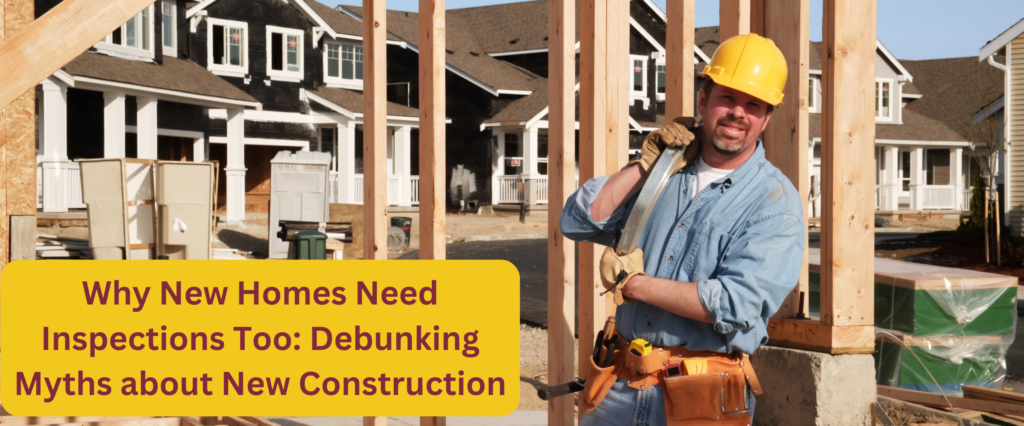
Many homebuyers assume that a newly constructed home is flawless – after all, everything is brand new, built to modern standards, and covered by a builder’s warranty. However, this common misconception can lead to costly surprises down the road. Let’s explore why home inspections are crucial even for new construction and debunk some prevalent myths along the way.
The “New Equals Perfect” Myth
Just because something is new doesn’t mean it’s perfect. Think about the last time you bought a new electronic device – even products from reputable manufacturers occasionally have defects. The same principle applies to new homes, which are far more complex than any single device.
Consider These Facts:
- A typical new home contains thousands of components and requires dozens of different contractors
- Construction usually happens under tight deadlines and varying weather conditions
- Even experienced builders can make mistakes or overlook details
- Municipal inspections focus primarily on code compliance, not quality or functionality
Common Issues Found in New Construction
Despite modern building practices and code requirements, inspectors regularly discover problems in new homes:
1. Foundation and Structural Issues
- Improper grading leading to water drainage problems
- Foundation cracks from premature removal of forms
- Inadequate structural support in attics or crawl spaces
2. Electrical Problems
- Missing GFCI protection in required areas
- Improperly wired outlets or switches
- Loose electrical connections
- Missing junction box covers
3. Plumbing Defects
- Improperly vented fixtures
- Leaking connections
- Reversed hot and cold water lines
- Poorly secured pipes
4. HVAC Issues
- Improper ductwork installation
- Missing or inadequate insulation
- Incorrect unit sizing
- Poor ventilation
The Value of Phased Inspections
For optimal results, consider multiple inspections throughout the construction process:
Pre-Pour Foundation Inspection
- Verifies proper site preparation
- Checks reinforcement placement
- Ensures adequate drainage provisions
Pre-Drywall Inspection
- Examines framing components
- Verifies electrical and plumbing rough-ins
- Checks window and door installation
- Reviews insulation installation
Final Inspection
- Comprehensive evaluation of all finished systems
- Verification of proper operation
- Documentation of any deficiencies
- Creation of punch list items
Why Timing Matters
Having inspections during construction rather than just at completion offers several advantages:
- Problems are easier and less expensive to fix before walls are closed
- Contractors are still actively working on site
- Issues can be addressed before final payments
- Documentation exists for warranty claims if needed
Beyond the Builder’s Warranty
While builder’s warranties provide important protection, they’re not a substitute for inspections:
- Warranties typically have strict notification requirements
- Some issues may not become apparent within the warranty period
- Documentation from independent inspections strengthens warranty claims
- Many warranties exclude issues that could have been discovered during construction
Making the Most of Your Investment
A new home is likely one of the largest investments you’ll ever make. Professional inspections help protect this investment by:
- Ensuring quality construction
- Identifying issues before they become expensive problems
- Providing leverage for necessary corrections
- Creating documentation for future reference
- Offering peace of mind
Choosing an Inspector for New Construction
When selecting an inspector for new construction, look for:
- Experience with new construction specifically
- Knowledge of current building codes and practices
- Willingness to perform phased inspections
- Clear communication and detailed reports
- Professional certifications Independence from the builder
Conclusion
The reality is that every home, regardless of age, benefits from professional inspection. New homes, despite their apparent perfection, can have significant issues that are easier and less expensive to address early. By investing in professional inspections during and after construction, you’re not just protecting your investment – you’re ensuring the safety, comfort, and longevity of your new home.
Remember: It’s always better to discover and address issues during construction than to find them after moving in. A qualified home inspector serves as your advocate, ensuring your new home is built to the standards you expect and deserve.
